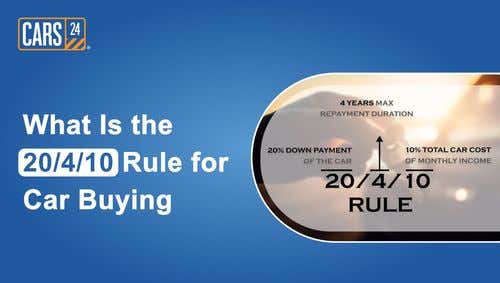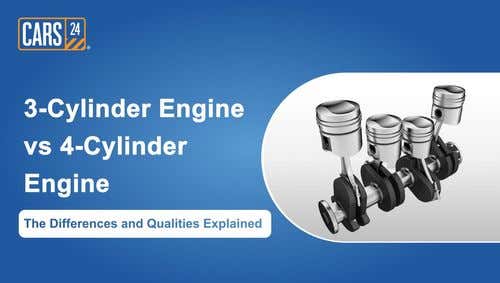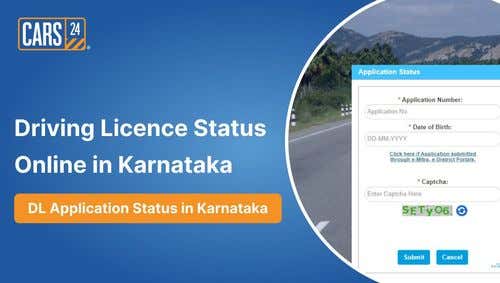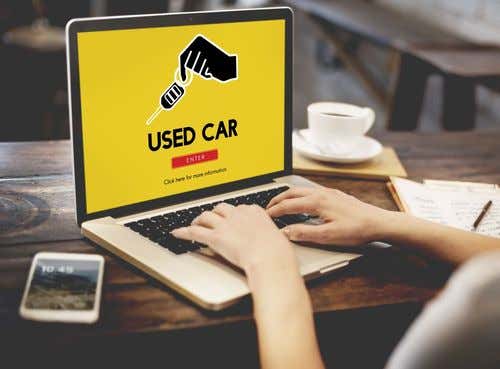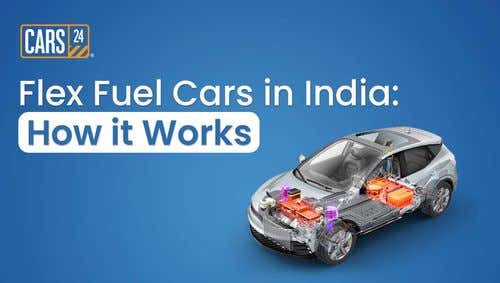What Is the Most Common Used Car Loan Scam? - How to Protect From This Scams

Updated on: 21st April, 2024 IST

Welcome to our beginner's guide on used car loan scams, with a specific focus on the situation in India. In today's world, where owning a car is often a necessity, getting an auto loan seems like a logical step. However, there's a growing concern – the prevalence of used car loan scams.
In this blog, we'll not only uncover the red flags and signs of a used car loan scam but also empower you with knowledge on how to avoid falling victim to these fraudulent schemes.
Plus, we'll guide you on what to do if, unfortunately, you've already been scammed. Let's dive in and learn how to protect your hard-earned money and make a safe and informed choice when it comes to used car loans in India.
Table of Contents
What Are Used Car Loan Scams?
Used car loan scams are deceptive practices used by dishonest individuals or groups to take advantage of unsuspecting individuals seeking auto financing, particularly when purchasing a used car.
In India, these scams have become increasingly prevalent, making it crucial for car buyers to be aware of them. These scams often involve false promises, hidden fees, and misleading tactics aimed at exploiting buyers' trust and financial vulnerability.
Understanding what these scams entail and how to avoid them is essential for safeguarding your finances when navigating the used car loan landscape in India. In the following sections, we'll provide valuable insights into identifying the signs of these scams and offer practical guidance on protecting yourself from falling victim to them.
Also Read: How Does Fake E-Challan Scam Works in India?
Why Are Used Car Loan Scams So Common?
Used car loan scams are unfortunately prevalent in India, primarily due to a mix of factors that make them appealing to fraudsters. Let's take a look at some of the most common factors:
1. Rising Demand
- The increasing demand for used cars in India creates more opportunities for scammers to prey on eager buyers seeking financing
2. Lack of Awareness
- Many consumers are not well-informed about these scams, making them vulnerable to deceptive practices
3. Online Anonymity
- The internet provides a cloak of anonymity for fraudsters, making it easier for them to operate without fear of being easily identified or caught
4. Adaptability
- Scammers are quick to adjust their tactics, staying one step ahead of authorities and consumers, which makes it challenging to combat these fraudulent schemes
Who Is Most at Risk of Falling Victim to Used Car Loan Scams?
Recognising that certain factors can increase one's risk of falling victim to used car loan scams is the first step towards protecting oneself. In India, certain groups are more susceptible to fraudulent schemes due to various vulnerabilities.
Let's take a closer look at some of the most vulnerable groups:
1. Inexperienced Buyers
- Individuals with limited knowledge of the car-buying process, especially first-time buyers, are more likely to be duped by scammers who exploit their lack of familiarity with the intricacies of the market
2. Poor Credit History
- Those with a history of financial struggles or poor credit ratings can become targets because they may be more desperate for financing and less likely to secure loans through legitimate channels
3. Urgent Approval Seekers
- Scammers often target individuals in a hurry to secure car loans quickly, as they are less likely to thoroughly research and scrutinise the terms and conditions of the loan, leaving them vulnerable to deceptive practices
Also Read: Common Petrol Pump Scams In India
Most Common Used Car Loan Scams in India
Navigating the used car loan landscape in India can be tricky, as scammers employ a variety of deceptive tactics to exploit unsuspecting buyers.
Here are some of the most prevalent scams to watch out for:
1. The Hidden Fees Trap
- Scammers offer low interest rates to attract borrowers
- Buried within the loan agreement are hidden fees, such as processing charges and documentation fees
- These hidden fees significantly increase the total cost of the loan
2. Phantom Lenders
- Fake lending institutions promise quick loan approvals
- They often operate without proper licence or registrations
- After collecting personal information and fees, these lenders vanish without providing the loan
3. Fake Credit Checks
- Scammers claim they can secure loans without checking your credit score
- This is a lie, especially aimed at individuals with poor credit history
- In reality, they may charge exorbitant interest rates
4. Stolen Identity
- Criminals use stolen personal data to apply for loans in your name
- This leaves you with debt and a damaged credit rating
- You may not even be aware of the loan until collection efforts begin
5. Inflated Car Prices
- Sellers artificially raise the price of the vehicle
- This leads to larger loans, and scammers pocket the difference
- Buyers may unknowingly overpay for the vehicle
6. Loan Modification Scams
- Fraudsters pose as legitimate loan modification companies
- They promise to reduce your interest rates but often charge substantial fees without delivering results
- This leaves you with a hefty bill and no real loan modification
7. Title Washing
- Scammers sell cars with altered titles to hide their troubled past
- Buyers may end up with vehicles that are worth far less than what they paid for
- These cars may have hidden damage or a history of accidents
8. Forced Add-Ons
- Dealers insist on add-ons like extended warranties, insurance, or unnecessary extras
- These additions inflate the loan amount, resulting in higher commissions for the dealer
- Buyers may pay for services they don't need
9. Vanishing Down Payment
- Dishonest dealers may claim that your down payment is non-refundable
- Even if the loan falls through, you won't get your down payment back
- This leaves buyers out of pocket and without a car
10. Telemarketing Scams
- Telemarketing scammers may call potential borrowers and offer them loans or cars
- They may pressure borrowers to make quick decisions and may not give them enough time to review the terms of the loan or car purchase agreement
11. Social media scams
- Social media scammers may post ads for used cars or loans on social media platforms such as Facebook and Instagram
- They may use fake profiles or impersonate legitimate lenders or car dealerships
- If potential buyers contact the scammers, they may be asked to send money upfront or to provide their personal information
Also Read: Used Car Loan: All You Need To Know
How to Protect Yourself from Used Car Loan Scams
When considering a used car loan in India, it's crucial to take proactive steps to protect yourself from potential scams. Here's an in-depth look at how to safeguard your financial interests:
1. Research Extensively
- Investigate the vehicle's history, including any accidents or repairs, using reliable sources
- Examine the lender's credibility by checking online reviews and their track record in the industry
2. Know Your Credit Score
- Obtain your free annual credit report to understand your credit history
- A good credit score can help you secure a legitimate loan and spot fraudulent lenders
3. Beware of Unrealistic Promises
- Be cautious of lenders who promise guaranteed approval without conducting a credit check
- Recognise that deals that seem too good to be true often involve hidden risks
4. Read the Fine Print
- Scrutinise every detail of the loan agreement
- Look for hidden fees, high interest rates, and unfavourable terms that could financially burden you
5. Verify Lender Credentials
- Ensure that the lender is licensed and regulated by the appropriate Indian authorities
- This assures that they operate within legal boundaries
6. Get a Vehicle History Report
- Obtain a comprehensive vehicle history report to uncover hidden issues with the car's title, accidents, or significant repairs
- This helps you make an informed buying decision
8. Consult Experts
- Seek advice from financial advisors or legal experts if you're uncertain about any aspect of the loan or purchase
- Their expertise can help you make sound decisions
Also Read: New Car Loan vs Used Car Loan
What to Do If You Suspect a Used Car Loan Scam
Discovering that you may have fallen victim to a used car loan scam can be distressing. Here's a step-by-step guide on how to respond effectively:
1. Gather Concrete Evidence
- Collect and organise all documents, emails, text messages, and any other communication related to the transaction
- Make notes of phone conversations or in-person meetings that may be relevant
2. Report to Authorities
- Contact local law enforcement agencies and file an official report about the scam
- Reach out to consumer protection agencies such as the Consumer Affairs Department or National Consumer Helpline in India
3. Notify Your Bank or Financial Institution
- Inform your bank or lender about the fraudulent loan application
- Work closely with them to investigate the issue and secure your financial accounts
4. Monitor Your Credit Report Closely
- Regularly check your credit report for any unusual or unauthorised activity
- Report any unfamiliar loans or accounts immediately to credit bureaus and your bank
5. Seek Legal Counsel
- Consult with an attorney experienced in handling fraud cases
- Discuss your situation, present your evidence, and explore potential legal actions to recover your losses
6. Stay Informed
- Stay updated on the progress of any investigations or legal actions related to your case
- Be prepared to provide additional information or support as needed
7. Protect Your Personal Information
- Strengthen your online security and protect your personal information to prevent further scams
- Be cautious about sharing sensitive data, even when pursuing legal action
Also Read: Know The Car Loan Process for Buy Used Car in India
The Bottom Line
In conclusion, safeguarding yourself from used car loan scams in India requires vigilance, knowledge, and swift action. With the right precautions, you can significantly reduce the risk of falling victim to fraudulent schemes.
Remember to research thoroughly, scrutinise lenders, and understand your credit score. Always read the fine print, verify credentials, and meet in person. Obtain a vehicle history report and avoid rushing into decisions. Seek expert advice when in doubt and trust your instincts.
If you ever suspect a scam, gather evidence, report it to authorities, notify your bank, and monitor your credit report. Consulting a fraud-focused attorney can help you explore legal options.
By following these steps and staying informed, you can confidently navigate the used car loan market in India, ensuring a safer and more secure car-buying experience.
FAQs
Q. How can I protect myself from used car loan scams?
To protect yourself from used car loan scams, research thoroughly, know your credit score, read loan agreements carefully, verify lender credentials, meet in person, get a vehicle history report, and trust your instincts. If you suspect a scam, gather evidence and report it to the authorities.
Q. How do you know if someone is scamming you for a car?
Be wary of unrealistic promises, high-pressure sales tactics, hidden fees, and deals that seem too good to be true. Always verify the seller's credentials, take your time making decisions, and trust your instincts. If in doubt, consult experts and do not rush into agreements.
Q. What are some common used car loan scam tactics?
Common used car loan scam tactics include hidden fees, phantom lenders, fake credit checks, stolen identity, bait and switch, inflated car prices, loan modification scams, title washing, forced add-ons, and vanishing down payments. Scammers use these tactics to exploit unsuspecting buyers.
Q. What should I do if I think I've been the victim of a used car loan scam?
If you believe you've been a victim of a used car loan scam, gather evidence, report it to local authorities and consumer protection agencies, notify your bank, monitor your credit report, and seek legal advice. Taking these steps can help you address the situation and protect yourself financially.
Recently Added Cars to Buy
Other Blogs
- Recent
- Featured
Popular Cities to Sell Car









